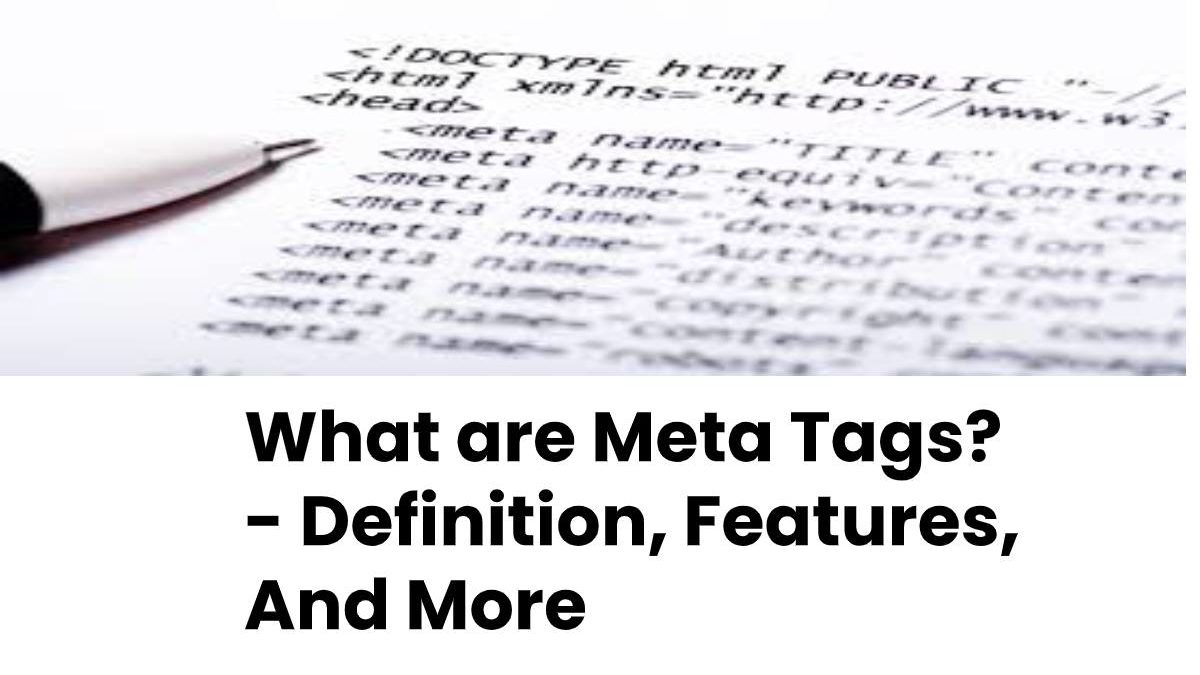Definition Meta Tags
Among SEO efforts, one of the most important is to optimize meta tags, or metadata. This information is inserted into the HTML code of your website or blog so that browsers and search engines can interpret the content.
Meta tags provide additional and specific information to search engines. They are excellent tools that, used correctly, can improve SEO positioning and give a significant boost to indexing.
Also read: What is SMS? Definition, Importance, Types, and More
What are meta tags, and why are they important to SEO?
Meta tags are tags (text strings or short lines of HTML code), hidden and inserted within the HTML code of web pages or blogs. Its function is to provide search engines and visitors with information about the content of the site.
The use of meta tags can make a difference when it comes to improving the traffic of your pages. And, more generally, when you want to boost the positioning of your website.
Meta tags increase traffic to your website
Although users cannot see meta tags, they get recognized by search engines. For this reason, they must contain the keywords, titles, and short descriptions that facilitate recognition of the main content of the web page. Also, it is particularly important for SEO, since, in this way, the search engines propose relevant results for user searches.
Now, there are different types of meta tags, and each one has its function, but not all are relevant to web positioning.
What are the SEO meta tags that you should use if you want your site to be well-positioned?
Most essential meta tags for content positioning
Meta tag Title
This tag is what tells Google what the key theme of your page is. Also, it is the core of good SEO optimization, since it is one of the elements that search engines take into account for the ranking.
The Title tag must contain the keywords you want to rank. At most, it should be written in 70 characters and should be concise; that is, it should go straight to the point, offering a preview of the page content.
Take the time to write a good title for your site
It should be compelling enough for the user of your page to feel that it will respond to their needs.
The text must be clear; a confusing title will not give you the desired results.
Meta description
The meta description is one of the most used meta tags. If you have browsed the internet you will have seen a text fragment that appears below the title, similar to this:
In most cases, if it is well written, the meta description accurately details the content of the page.
Why is this tag vital to the good health of your website?
An optimized meta description can convince the user to click on your site among all the results proposed by the search engine.
The meta description is a longer text string than the title tag, but it must also be specific and persuasive. Also, your content should target users, especially interested in the title, rather than search engines.
Consequently, you must write the meta description for the readers, and it has to be captivating and truthful so that they know what they will find if they continue browsing.
The optimal length of the meta description is 155 characters; however, Google increased the threshold to 230. The problem is that both ranges still coexist, and Google chooses to display one or the other as appropriate.
So what should you do? Taking into account the maximum limit of 230 characters, write the text of the tag. Then you can use a plugin like Yoast SEO, which we will talk about shortly, which will help you not exceed the character limit recommended by Google.
Also read: What is CAGR? – Definition, Characteristics, Advantages, and More
Kamran Sharief
Related posts
Sidebar
Recent Posts
The Rise of Legal Tech Startups: What Law Firms Need to Know
Introduction The legal profession, often rooted in tradition and resistant to change, faces a technological revolution. Legal tech startups are…
Shiba Inu vs. Dogecoin: The Battle of the Meme Coins
In the realm of cryptocurrency, there has been an ongoing battle between two popular meme coins, Shiba Inu and Dogecoin….




Review What are Meta Tags? – Definition, Features, And More.